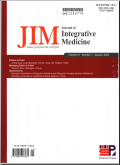Knowledge about,attitude and acceptance towards,and predictors of intention to receive the COVID-19 vaccine among cancer patients in Eastern China:A cross-sectional survey
摘要Objective:The coronavirus disease 2019 (COVID-19) pandemic has had a serious impact on health all over the world.Cancer patient,whose immunity is often compromised,faces a huge challenge.Currently,some COVID-19 vaccines are being developed and applied on general population;however,whether cancer patients should take COVID-19 vaccine remains unknown.Our study aimed to explore the knowledge,attitude,acceptance,and predictors of intention to receive the COVID-19 vaccine among cancer patients in Eastern China.Methods:A cross-sectional study was conducted in Eastern China from June 17th to September 3rd,2021.Patients were selected using a convenience sampling method.A self-report questionnaire was developed to assess knowledge about the COVID-19 vaccine,attitude towards the vaccine and acceptance of the vac-cine;following a review of similar studies previously published in the scientific literature,multivariate logistic regression analysis was used to determine the predictors associated with COVID-19 vaccine acceptance.Results:A total of 2158 cancer patients were enrolled in this study.The rate of vaccine hesitancy was 24.05% (519/2158);further,among the participants of vaccine acceptance,767 had taken COVID-19 vac-cine (35.54%),and 872 were willing to get vaccinated (40.01%).A total of 24 variables including demo-graphic characteristics,clinical status of cancer,impact of COVID-19 pandemic on study participants,patients' knowledge about the COVID-19 vaccine,and attitude towards the vaccine,had significant dif-ferences between the "vaccine hesitancy" population and "vaccine acceptance" population.Multivariate logistic regression analysis indicated that parameters including alcohol consumption (odds ratio[OR]=1.849;95% confidence interval[CI]:1.375-2.488;P-reference[P-Ref]< 0.001 vs non-drinkers),income impacted by COVID-19 pandemic (OR =1.930,2.037 and 2.688 for mild,moderate,and severe impact,respectively;all P-Ref < 0.01 vs no impact),knowledge of how the vaccine was devel-oped (OR =1.616;95% CI:1.126-2.318;P-Ref =0.009 vs unknown),believing in the safety of the vaccine(OR =1.502;95% CI:1.024-2.203;P-Ref =0.038 vs denying the safety of vaccine),willingness to pay for the vaccine (OR =3.042;95% CI:2.376-3.894;P-Ref < 0.001 vs unwilling),and willingness to recommend families and friends to get vaccinated (OR =2.744;95% CI:1.759-4.280;P-Ref < 0.001 vs do not recom-mend) were contributors to vaccine acceptance.While such as being retired (OR =0.586;95% CI:0.438-0.784;P-Ref < 0.001 vs unemployed),undergoing multiple therapies of cancer (OR =0.408;95% CI:0.221-0.753;P-Ref =0.004 vs no ongoing treatment),and worrying that the vaccine might deteriorate the prog-nosis of cancer (OR =0.393;95% CI:0.307-0.504;P-Ref < 0.001 vs might not) were contributors to vaccine hesitancy.Conclusion: This study provided preliminary estimates of the rates of vaccine acceptance and vaccine hesitancy among cancer patients in Eastern China. The intention to receive the COVID-19 vaccine was impacted by factors such as patient occupation, alcohol consumption, and some parts of knowledge about and attitude towards COVID-19 vaccine. It is recommended to develop individualized vaccination plans that meet the healthcare needs of cancer patients.
更多相关知识
- 浏览22
- 被引5
- 下载0


相似文献
- 中文期刊
- 外文期刊
- 学位论文
- 会议论文



 换一批
换一批 换一批
换一批



